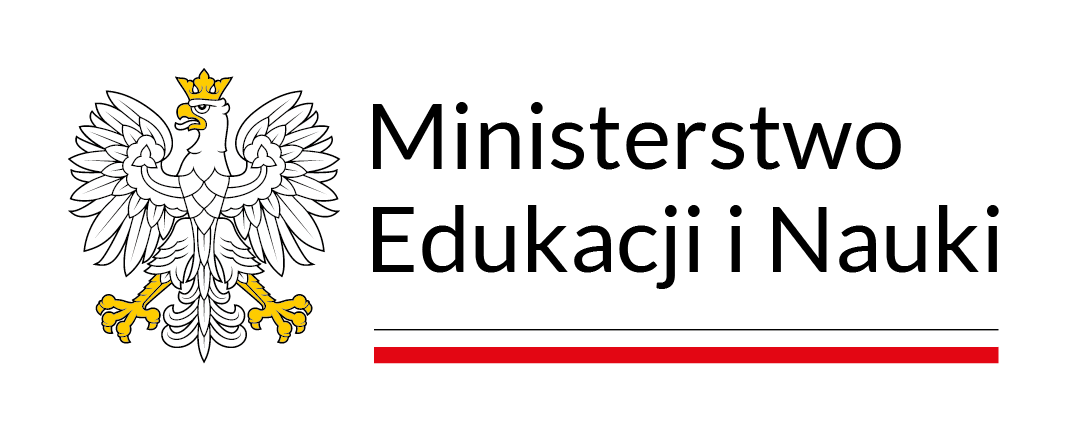Towards a Radically Relational Post-Grotowskian Performance Paradigm
Virginie Magnat
virginie.magnat@ubc.caUniversity of British Columbia (Kanada)
https://orcid.org/0000-0002-5090-4513
Abstrakt
Jerzy Grotowski zatytułował swój cykl wykładów w College de France La „lignée organique" au théâtre et dans le rituel („Linia organiczna” teatrze i rytuale). Autorka, która dokumentowała te ostatnie publiczne wystąpienia, stawia tezę, że organiczność stanowi linię łączącą teatralne i postteatralne badania Grotowskiego. Odwołuje się do tych wykładów i do własnego treningu opartego na praktykach Grotowskiego, w tym do pracy z Reną Mirecką, a także do współpracy badawczej z rdzennymi artystami i badaczami z Turtle Island (Ameryka Północna), między innymi z Floydem Favelem, który praktykował z Grotowskim i z Mirecką. Autorka wskazuje, że w różnorodnych tradycyjnych praktykach kulturowych, których rolą jest wzmacnianie, przywracanie i podtrzymywanie równowagi między ludzkimi i nie-ludzkimi formami życia, organiczność jest rozumiana jako żywa siła nadająca procesom performatywnym energię, moc i skuteczność. Post-Grotowski paradygmat performatywności zaproponowany przez autorkę opiera się na nieantropocentrycznej perspektywie inspirowanej ekologicznym i duchowym wymiarem relacyjności podkreślanym przez kilka pokoleń rdzennych badaczy. Autorka twierdzi, że taka zmiana paradygmatu, która rzuca wyzwanie praktykom artystycznym gloryfikującym ludzką kreatywność, może stanowić realną alternatywę dla dominacji (eurocentrycznych) nowomaterialistycznych i posthumanistycznych teorii nie-ludzkiej sprawczości.
Słowa kluczowe:
Jerzy Grotowski, Rena Mirecka, indygenne epistemologie, nieantropocentryczna performatywność, relacyjnośćBibliografia
Aluli-Meyer, Manulani. “Holographic Epistemology: Native Common Sense.” China Media Research 9, no, 2 (2013): 94–101.
Google Scholar
Barad, Karen. Meeting the Universe Halfway: Quantum Physics and the Entanglement of Matter and Meaning. Durham, NC: Duke University Press, 2007.
DOI: https://doi.org/10.2307/j.ctv12101zq
Google Scholar
Cajete, Gregory. Native Science: Natural Laws of Interdependence. Santa Fe: Clear Light Publishers, 2000.
Google Scholar
Deloria, Vine Jr. The Metaphysics of Modern Existence. New York: Harper and Row, 1979.
Google Scholar
Fiscus, Daniel A. “The Ecosystemic Life Hypothesis I: Introduction and Definitions.” Bulletin of the Ecological Society of America 82, no. 4 (2001): 248–250. https://doi.org/10.1890/0012-9623(2001)082[0235:SACN]2.0.CO;2.
Google Scholar
Fiscus, Daniel A. “The Ecosystemic Life Hypothesis II: Four Connected Concepts.” Bulletin of the Ecological Society of America 83, no. 1 (2002): 94–96. https://doi.org10.18900012-9623(2002)083[0077:C]2.0.CO;2.
Google Scholar
Fiscus, Daniel A. “The Ecosystemic Life Hypothesis III: The Hypothesis and Its Implications.” Bulletin of the Ecological Society of America 83, no. 2 (2002): 146–149. https://doi.org/10.18900012-9623(2002)083[0131:C]2.0.CO;2.
Google Scholar
Four Arrows, Greg Cajete, and Jongmin Lee. Critical Neurophilosophy and Indigenous Wisdom. Rotterdam: Sense Publishers, 2010.
DOI: https://doi.org/10.1163/9789460911101
Google Scholar
Gergen, Kenneth J. Relational Being: Beyond Self and Community. New York: Oxford University Press, 2009. https://doi.org/10.1093/acprof:osobl/9780199846269.001.0001.
DOI: https://doi.org/10.1093/acprof:osobl/9780199846269.001.0001
Google Scholar
Grotowski, Jerzy. “From the Theatre Company to Art as Vehicle.” Translated by Thomas Richards, Michel A. Moos, and Jerzy Grotowski. In At Work with Grotowski on Physical Actions, 115–135. New York: Routledge, 1995.
Google Scholar
Grotowski, Jerzy. “Holiday (Święto): The Day That Is Holy.” In Wolford and Schechner, The Grotowski Sourcebook, 215–225.
Google Scholar
Grotowski, Jerzy. “A Kind of Volcano.” Interview by Michel de Salzman. In Gurdjieff: Essays and Reflections on the Man and His Teaching, edited by Jacob Needleman et al., 87–106. New York: Continuum, 1996.
Google Scholar
Grotowski, Jerzy. “La lignée organique au théâtre et dans le rituel.” Lectures at Collège de France, Paris. 1997–1998 (March 24, 1997; June 2, 1997; June 16, 1997; June 23, 1997; October 6, 1997; October 13, 1997; October 20, 1997; January 12, 1998, and January 26, 1998).
Google Scholar
Grotowski, Jerzy. “Odpowiedź Stanisławskiemu.” Dialog 25, no. 5 (1980): 118–119.
Google Scholar
Grotowski, Jerzy. “Performer.” Translated by Thomas Richards. In Wolford and Schechner, The Grotowski Sourcebook, 376–380.
Google Scholar
Grotowski, Jerzy. “Reply to Stanislavsky.” Translated by Kris Salata. TDR/The Drama Review 52, no. 2 (2008): 31–39.
DOI: https://doi.org/10.1162/dram.2008.52.2.31
Google Scholar
Grotowski, Jerzy. Towards a Poor Theatre. Edited by Eugenio Barba. New York: Routledge, 2002.
Google Scholar
Grotowski, Jerzy. “Tu es le fils de quelqu’un.” Translated by James Slowiak and Jerzy Grotowski. In Wolford and Schechner, The Grotowski Sourcebook, 294–305.
Google Scholar
Magnat, Virginie. Grotowski, Women, and Contemporary Performance: Meetings with Remarkable Women. New York: Routledge, 2014.
DOI: https://doi.org/10.4324/9780203068069
Google Scholar
Magnat, Virginie. The Performative Power of Vocality. London: Routledge 2019. https://doi.org/10.4324/9780429340338.
DOI: https://doi.org/10.4324/9780429340338
Google Scholar
Magnat, Virginie. “Wykłady Grotowskiego w Collège de France.” Translated by Grzegorz Ziółkowski. Didaskalia. Gazeta Teatralna, no. (2004): 15–18; no. 65/66 (2005): 85–90; no 67/68 (2005): 90–95; no. 70 (2005): 88–93; no. 71 (2006): 89–94; no. 73/74 (2006): 93–97; no. 77 (2007): 114–120.
Google Scholar
Sen-Podstawska, Sabina Sweta, and Floyd Favel. “Performance Training as Healing: Reflecting on Workshops Leading to Indigenous Theatre Process Native Performance Culture (NPC).” In Performance Training and Well-Being,” edited by Virginie Magnat and Nathalie Gauthard, special issue, Theatre, Dance and Performance Training 13, no. 2 (2022): 197–211. https://doi.org/10.1080/19443927.2022.2066333.
DOI: https://doi.org/10.1080/19443927.2022.2066333
Google Scholar
Wilson, Shawn. Research Is Ceremony: Indigenous Research Methods. Black Point: Fernwood, 2008.
Google Scholar
Wolford, Lisa, and Richard Schechner, eds. The Grotowski Sourcebook. London: Routledge, 1997.
Google Scholar
Autorzy
Virginie Magnatvirginie.magnat@ubc.ca
University of British Columbia Kanada
https://orcid.org/0000-0002-5090-4513
Virginie Magnat - badaczka i performerka z Oksytanii we Francji. Jest profesorem zwyczajnym na Uniwersytecie Kolumbii Brytyjskiej i prowadzi badania na pograniczu studiów performatywnych, antropologii kulturowej, badań jakościowych, badań artystycznych oraz indygennych epistemologii i metodologii. Jest autorką dwóch monografii: The Performative Power of Vocality (Routledge 2020) oraz Grotowski, Women, and Contemporary Performance: Meetings with Remarkable Women (Routledge 2014), a także serii filmów dokumentalnych Meetings with Remarkable Women prezentowanych w Routledge Performance Archive (https://virginiemagnat.space/).
Statystyki
Abstract views: 464PDF downloads: 419
Licencja
Prawa autorskie (c) 2023 Virginie Magnat

Utwór dostępny jest na licencji Creative Commons Uznanie autorstwa 4.0 Międzynarodowe.
Autor/ka udziela niewyłącznej i nieodpłatnej licencji (CC BY 4.0) na wykorzystanie tekstu w "Pamiętniku Teatralnym", zachowuje nieograniczone prawa autorskie, ale zobowiązuje się do podawania miejsca pierwodruku przy ponownym wykorzystaniu artykułu (umowa licencyjna do pobrania). Zgłaszając artykuł do publikacji, autor/ka wyraża zgodę na jego udostępnianie na licencji CC BY 4.0.
Od zeszytu 1/2018 do zeszytu 3/2022 artykuły publikowane były na licencji CC BY-NC-ND 4.0. W tym okresie autorzy/ki udzielali niewyłącznej i nieodpłatnej licencji (CC BY-ND 4.0) na wykorzystanie tekstu w "Pamiętniku Teatralnym", zachowywali nieograniczone prawa autorskie, ale zobowiązywali się do podawania miejsca pierwodruku przy ponownym wykorzystaniu artykułu.









